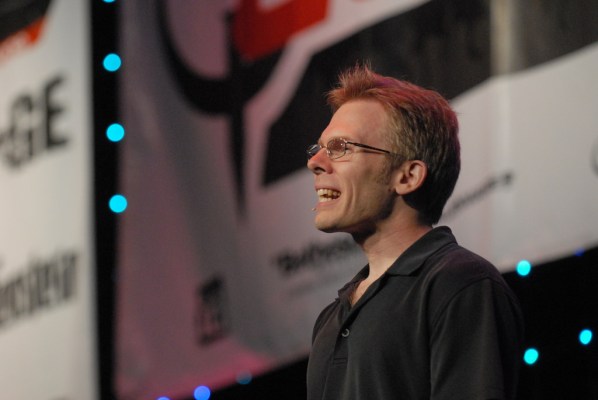As the dust settles from yesterday’s $500 million verdict against Oculus VR and Facebook, Oculus CTO John Carmack still has some things he wants to get off his chest.
“Being sued sucks,” he said in a Facebook post he published this morning.
Though Carmack avoided paying any damages in the final verdict, unlike Oculus founder Palmer Luckey and former-CEO Brendan Iribe, he was very much central to ZeniMax’s entire set of claims relating to the trade secrets and copyright infringement that the company asserted Oculus was guilty of.
Before leaving to join Oculus as its CTO, Carmack worked for id Software, a company he had co-founded and which was acquired by ZeniMax Media in 2009. On the copyright infringement front, ZeniMax lawyers and expert witness claimed that Carmack had taken code that he had developed while an employee of ZeniMax and had “non-literally copied” it in his work at Oculus, basically saying he had changed a couple of things but the core code was still there.
Carmack reacted to the judgment awarded to ZeniMax in his post and, more specifically, took issue with the expert witness’s claims throughout the trial that Carmack had copied code.
Early on in his testimony, I wanted to stand up say “Sir! As a man of (computer) science, I challenge you to defend the efficacy of your methodology with data, including false positive and negative rates.” After he had said he was “Absolutely certain there was non-literal copying” in several cases, I just wanted to shout “You lie!”. By the end, after seven cases of “absolutely certain”, I was wondering if gangsters had kidnapped his grandchildren and were holding them for ransom.
The jury notably did not find Oculus guilty of stealing trade secrets but did order the company to pay $500 million in damages related to the charges of the NDA violation, false designation and copyright infringement.
Carmack went on to detail how he was “offended” that the expert witness would characterize being “absolutely certain” of anything when it comes to something like textual analysis of his codebase.
“That isn’t the language of scientific inquiry,” Carmack wrote.
There are objective measures of code similarity that can be quoted, like the edit distance between abstract syntax trees, but here the expert hand identified the abstract steps that the code fragments were performing, made slides that nobody in the courtroom could actually read, filled with colored boxes outlining the purportedly analogous code in each case. In some cases, the abstractions he came up with were longer than the actual code they were supposed to be abstracting.
Furthermore, Carmack also expressed frustration that the bulk of the expert testimony was under wraps and not something he was able to read and pick apart. “I wasn’t allowed to read the full expert report, only listen to him in trial, and even his expert testimony in trial is under seal, rather than in the public record.”
Carmack believes that if these reports were made public, “…The internet would have viciously mocked the analysis.” The Oculus CTO also suggested that “testifying in court as an expert should be as much a part of your permanent public record as the journal papers you publish. In many cases, the consequences are significant. There should be a danger to your reputation if you are imprudent.”
His complaints ultimately highlight clear issues that result when presenting highly technical cases to a jury that is likely not filled with computer scientists. The saga of this particular judgment may be close to over, but ZeniMax has emphasized that the company may be interested in seeking an injunction “to restrain Oculus and Facebook from their ongoing use of computer code that the jury found infringed ZeniMax’s copyrights.”
